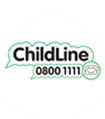GCSE Drama - Years 10 & 11
Specification
AQA GCSE Drama (course code: 8261) - The specification and assessment structure can be found at the link: https://www.aqa.org.uk/subjects/drama/gcse/drama-8261
What will I study?
GCSE Drama will help you to develop practical and evaluative skills, whilst gaining an appreciation of drama through performance, devising and critical deconstruction of live theatre.
You will demonstrate your own abilities through practical elements of the course as well as your theory and understanding in the written paper.
The AQA GCSE Drama Course comprises of three units:
| Content Overview | Course Content |
|---|---|
|
Component 1: Understanding Drama (written examination) |
Knowledge and understanding of drama and theatre Study of one set play (Blood Brothers, by Willy Russell – tbc) Analysis and evaluation of the work of live theatre makers
|
|
Component 2: Devising Drama (practical) |
Process of creating devised drama Performance of devised drama (students may contribute as performer or designer) Analysis and evaluation of own work
|
|
Component 3: Texts in Practice (practical) |
Performance of two extracts from one play (students may contribute as performer or designer)
|
How will I learn?
In a lively and entertaining environment, you will learn how to react to a range of situations and scenarios.
Through developing an understanding of the practical skills involved in communicating ideas to an audience and exploring different methods of presentation – both scripted and improvised.
By responding to texts, theatre visits and other stimuli with awareness of how drama can be interpreted and by evaluating and analysing your own drama work as well as that of others – in both oral and written form.
What skills and qualities are required?
- Co-operation – most of the work is collaborative and the ability to work well with others is essential
- Creativity – being prepared to voice your own ideas
- Compromise and flexibility – there are always other ways of completing a task
- Commitment – it is a course requirement that you learn lines, which will necessitate some rehearsals after school at certain times of year
- Enthusiasm – the desire to explore and experiment with dramatic techniques (and have fun whilst doing so!)
How will I be assessed?
Component 1 (40%): written examination (1 hour 45 minutes)
Component 2 (40%): devised practical work – internally marked by the school and then externally moderated by AQA
Component 3 (20%): practical performance – marked by AQA visiting examiner
Where could it lead?
GCSE Drama specifically helps to prepare for careers in Drama and Theatre, including:
- Actor
- Director
- Lighting technician
- Theatre manager
- Stage manager
- Teacher
- Drama therapist
GCSE Drama is not, however, simply about ‘becoming an actor’. The course has many transferable skills which can be applied to other areas of study and future careers, including:
- Leadership
- Confidence
- Creative thinking
- Critical evaluative writing
- Time management
- Ability to deal with critique
- Ability to voice opinions
- Self-discipline
- Self-awareness
Year 10
| Topic | Further details about the topic | Skills | |
|---|---|---|---|
| Autumn Term | |||
| 1 | Component 1: Introduction to Drama & Performance Skills |
Students will be introduced to the GCSE Drama course, and study key drama and theatre roles, core explorative strategies and key elements of the drama medium. Blood Brothers will be introduced as the set text, with explorations of the social, cultural and historical context of the text. |
Creating Performing Evaluating |
| 2 | Component 1: Exploring Blood Brothers | Students will continue to explore the plot, structure, context and key characters of set text, Blood Brothers, through explorative strategies, such as still image, thought-tracking, hot-seating and forum theatre. |
Creating Performing Evaluating |
| Spring Term | |||
| 1 | Component 1, C: Live Performance |
Students will develop their confidence in evaluating both their own dramatic work and the work of others. Students will understand the importance of developing a personal analysis and evaluation of the theatrical elements, and how meaning is communicated to an audience. |
Creating Performing Evaluating |
| 2 |
Component 2: Devising: Introducing and development of ideas |
Students will be introduced to the devising unit through the exploration of a range of creative stimuli – including paintings, poems, songs and excerpts from books – to inspire devised work. Stimuli includes material centred around a diverse range of topics, such as ‘Outsiders’, ‘Tomorrow’s World’ and ‘’Fragile Earth’ |
Creating Performing Evaluating |
| Summer Term | |||
| 1 | Component 2: Applying devising skills to stimuli | Students will continue to explore a further range of stimuli to create and develop ideas to communicate meaning for theatrical performance. There will be greater emphasis on using explorative strategies in design and the devising log will be used to chart the progress when devising. |
Creating Performing Evaluating |
| 2 | Component 2: Devising Research & Development | Students will begin to create drama from stimulus material, maintaining written records of the devising process to aid the formulation of ideas, and reflect on and evaluate their own work and that of others, both verbally and through written tasks. |
Creating Performing Evaluating |
Year 11
| Topic | Further details about the topic | Skills | |
|---|---|---|---|
| Autumn Term | |||
| 1 |
Component 2: Devising Drama (performance and log completion) |
Students will develop a range of theatrical skills and apply them to create a confident performance. Students will use their devising logs to reflect on and evaluate their own work and that of others. |
Creating Performing Evaluating |
| 2 | Component 3: Texts in practice |
Students will apply their prior knowledge and understanding when making, performing and responding to drama. Students will develop a range of theatrical skills and apply them to create performance. There will be an emphasis on the importance of rehearsals and confidently getting into role. |
Creating Performing Evaluating |
| Spring Term | |||
| 1 | Component 3: Visiting examiner performance | Students will use play texts and feedback from own devised work to create confident performances in readiness for the visiting examiner performance. This will include a focus on voice, movement, roles, characterisation and communication. |
Creating Performing Evaluating |
| 2 | Revision of Sections A, B and C (Component 1) | Students will consolidate their knowledge of the processes of creating, performing and evaluating performances. This will include reviewing the set text, understanding its social, cultural and historical context, including the theatrical conventions of the period in which it was created. |
Creating Performing Evaluating |
| Summer Term | |||
| 1 |
Revision of Sections A, B and C (Component 1) |
Students will consolidate their knowledge of the processes of creating, performing and evaluating performances. This will include reviewing the set text, understanding its social, cultural and historical context, including the theatrical conventions of the period in which it was created. |
Creating Performing Evaluating |
Assessments
| Resources | Topic | Type of assessment |
|---|---|---|
| CAT 1 | Component 1, Sections A & B | Exam paper |
| CAT 2 |
Component 1, Section C (Live Performance) Component 2: Devising Skills |
Exam paper Practical assessment |
| CAT 3 |
Component 2: Log & Practical Performance |
Assessment based on both devising log and practical work |
| CAT 4 |
Component 3 |
Practical performance |
| CAT 5 |
Component 1, Sections A & B |
Exam paper |
| CAT 6 |
Component 1, Section C |
Exam paper |
Main Resources
| Resource | Details |
|---|---|
| Text books |
AQA GCSE Drama (Annie Fox), IBSN: 9781912820504
Blood Brothers Play Guide for AQA GCSE Drama (Annie Fox), ISBN: 9781911208709
GCSE Drama: Live Theatre Evaluation (Annie Fox), ISBN: 9781912820979 Blood Brothers (Willy Russell), ISBN: 9780413767707 |
| Recommended reading |
Grade 9-1 GCSE Drama Revision Guide (CGP), ISBN: 9781782949626 All About Theatre (National Theatre), ISBN: 9781406373394 The Complete Brecht Toolkit (Stephen Unwin), ISBN: 9781854595508) The Complete Stanislavksy Toolkit (Bella Merlin), ISBN: 9781848424067 |
|
Recommended websites |
https://www.nationaltheatre.org.uk/ |
Enrichment opportunities
| Activity | Day and time or term |
|---|---|
| Key Stage 3 Drama Club – GCSE students are invited to act as mentors to KS3 students and lead sessions | Wednesdays, 1:00 – 1:30pm, Room 43 (Mr Kearney) |
| Additional Group Rehearsals |
By prior arrangement with Mr Kearney/Mr Clack |
| Theatre Visits | As appropriate with the course structure. |







